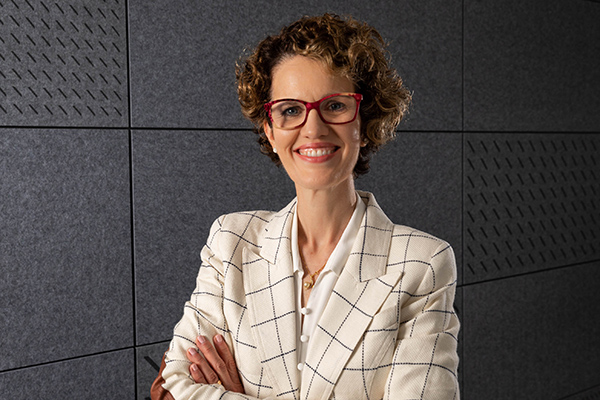If Academia Had More Play and Collaboration, the World Would Benefit
Solutions to our most complex global challenges depend on the innovation of colleges and universities. From ultrasounds and x-rays to artificial intelligence and the webcams now powering our virtual connections, academia has given birth to some of the most significant discoveries of all time. Yet there is a lot more universities can do to bring about solutions to global problems such as inequality, poverty, climate change and public health crises.
It’s time for higher education institutions worldwide to build in more space for improvisation and experimentation — the kind that has been proven through decades of research to spark innovation. This means supporting the development of new systems for collaboration across borders of all kinds — for idea incubation, not strictly publication.
Academics, myself included, must continue to be the very best we can be in our own disciplines. But we also must take the time to look sideways — to take risks, make connections and follow some pathways that are not so well defined for us — where payoffs aren’t so clear. The problem is we have little incentive to do so. Age-old mores of the academy conspire against us. Our value is still measured by the quantity of publications we produce for elite journals, and real-world problem solving is viewed as a less serious and rigorous endeavor than peer-reviewed scholarship. We’re trained to compete, not collaborate.
 Forces outside the academy have begun to change this. The National Science Foundation (NSF) now judges the merit of the proposals it receives on the basis of scholarly rigor and potential for broader societal impact. Foundations and philanthropists are also increasingly funding interdisciplinary work. But we need to change the reward structures from within. We need to create structures that support and reward collaborative genius. Scholars from across disciplines joined forces in unprecedented ways amid COVID-19, to contribute to vaccine development, engineer new PPE technologies, play a leading role in distributing critical medical supplies and more. We need to seize this moment and make this our modus operandi, and that will require lowering the stakes.
Forces outside the academy have begun to change this. The National Science Foundation (NSF) now judges the merit of the proposals it receives on the basis of scholarly rigor and potential for broader societal impact. Foundations and philanthropists are also increasingly funding interdisciplinary work. But we need to change the reward structures from within. We need to create structures that support and reward collaborative genius. Scholars from across disciplines joined forces in unprecedented ways amid COVID-19, to contribute to vaccine development, engineer new PPE technologies, play a leading role in distributing critical medical supplies and more. We need to seize this moment and make this our modus operandi, and that will require lowering the stakes.
Scholarly work is largely about defending a thesis, arguing a point, staking a claim. We need to carve out time for pure intellectual play — just a little bit of space for free-form dialogue where there is nothing to gain or lose. The evidence behind “playtime” at all ages is clear, and young people are encouraged to do it all the time. Scholars need space for open, free form wondering and tinkering, too, especially as today’s global challenges grow increasingly complex and demand cross-disciplinary, transnational solutions.
We’ve developed an Idea Incubation Process for this at Northwestern — with grant opportunities embedded — and have found faculty eager to engage. Since its launch in 2019, nearly 200 Northwestern faculty members from 10 schools and 45 departments have participated in the process, which begins with Idea Dialogues that require nothing more than a willingness to engage in an hour-long discussion with colleagues who share similar research interests but come from different disciplines, coupled with a healthy sense of curiosity.
Some of these dialogues lead to dead ends. But many have sparked new Global Working Groups, and others have resulted in some truly path-breaking projects. A legal scholar and sociologist who met at an Idea Dialogue received a National Science Foundation grant to develop the largest database of tribal constitutions and amendments ever assembled. A computer science professor and start-up founder who first connected through an Idea Dialogue launched the Emergency Resource Exchange, an online marketplace that connects hospitals in need of medical supplies with manufacturers, laboratories and other potential resource providers.
Our active global working groups have also secured major funding awards for work seeded through the Idea Incubation Process. Members of our Disproportionate Impacts of Environmental Challenges group recently secured a $5 million NSF grant for their work with Indigenous scientists to conserve Great Lakes wetlands, while our Antibiotic Resistance Group received a $2.5 million grant from the Centers for Disease Control and Prevention to study antimicrobial resistance patterns and develop a roadmap for coordinating responses to antimicrobial resistance across academic, political and medical institutions.
These are just a few examples, and yet this kind of cross-pollination is still rarer than it should be in university settings where opportunities to cross boundaries abound. So, let’s continue to think creatively across bodies of knowledge to address increasingly complex and interconnected global challenges. It’s time to reward a new kind of scholarship — no less rigorous, but much more interdisciplinary and collaborative than before.